Supporting First-Generation Students in Nepal: An Interview with Barsha Tamang about Design Thinking, Youth Advocacy, and ESL
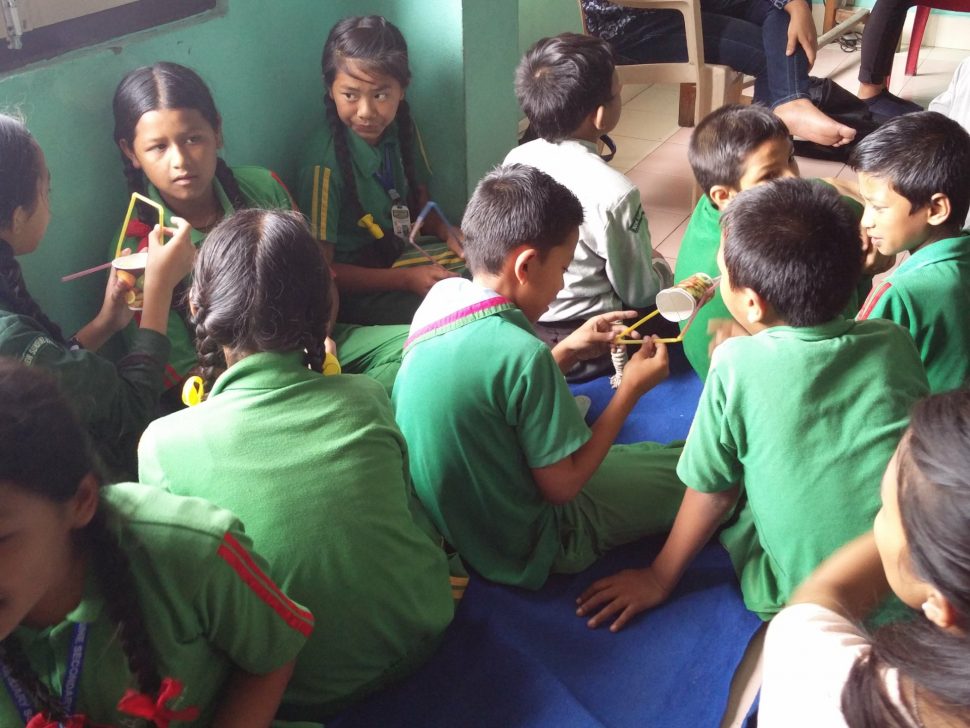
Barsha Tamang is the co-founder and CEO of Lokopakar, a youth development organization. The organization is offering programs for youth, in particular adolescent girls, in Nepal. The goal is to raise awareness among young people for different pathways in education and overcome the feeling of not being capable. Many Nepal high school students who come from an indigenous background see going abroad and working in low-skill jobs to earn money as their only career path. Most are unaware of their options for attaining higher education and other potential career paths that lead to skilled, higher-wage employment.
Barsha herself is a first-generation female student in her family and the first woman to finish a Master’s degree in her village. She was raised by a single mother who instilled in her the value of education.
Lokopakar recently started a platform and community for first-generation students in Nepal, to help students connect with each other, learn life skills, and network with older students. Among other things, the organizers run a design thinking challenge called ‘Ready Set Design’. In the interview, we talk about design thinking,
What inspired you to start Lokopakar?
Lokopakar aims to create an encouraging atmosphere for students to grow, learn, and thrive without being held back by self-doubt or fear. Lokopakar help disadvantaged youths overcome the feeling of not being enough.
Learning in a fun and safe environment brings greater joy to the learning process compared to approaching it with fear. Overcoming the fear of inadequacy and hesitation to try new things has been a personal goal of mine. This led me to explore ways to change my mindset about learning, and that’s when Lokopakar came into existence – an initiative aimed at addressing feelings of inadequacy and providing a secure space for learning.
Throughout my life, I’ve always strived to achieve more and give my best in everything I do. However, the fear of not being good enough and the possibility of failure often held me back from taking risks. Looking back, I realized that early experiences and missed opportunities shaped my perspective. I wish I had access to such supportive environments from a young age.
In my pursuit to help others not miss out on the opportunities I did, I have been passionate about reaching out to students and providing them with the support they need. Witnessing their success and happiness in their learning journey has been my inspiration to establish Lokopakar and continue this transformative journey.
Over the years, I have worked with thousands of students through various grassroots projects like Scitrek and ThinkInk. My co-founder and I always knew that we wanted to make a positive impact in the field of education, especially in the lives of students who often feel inadequate – particularly girls. I, too, have experienced these emotions. Recognizing the lack of safe spaces where personal stories can be shared and skills can be learned inclusively, Lokopakar was born as a platform to provide a secure environment for youth to express themselves and learn from one another. All our programs are designed to help young individuals overcome their feelings of inadequacy.
What are the biggest challenges that first-generation students in Nepal face and how does Lokopakar help students overcome these challenges?
During our sessions at three public schools, we discovered that 50 out of 59 girls were first-generation students. These students, particularly girls, face daily challenges in their coursework, especially with getting homework help and with seeking consultation and support from teachers. These daily challenges turn into ongoing problems, as they struggle to navigate school and high school while trying to find the right resources and individuals to support them. Furthermore, there are long-term challenges related to mapping their education and career journey, as well as creating a successful future for themselves.
First-generation students often lack the necessary support, as their immediate family and peers may not have the experience and knowledge to guide them, having not pursued higher education before. Without adequate support, many of these students face failure, and rapid dropout, and may end up disengaging from the education system altogether.
Lokopakar is the first organization dedicated to supporting first-generation students in Nepal. We address a range of challenges, from helping with homework through peer groups to guiding them in career mapping using various tools. Our activity-based programs aim to facilitate the learning process for these students, focusing on crucial life skills such as public speaking, communication, critical thinking, and goal setting. These skills have a lasting impact on the lives of first-generation students.
In addition, we connect experienced first-generation students with current first-generation students, allowing them to share their experiences and reduce the learning curve. The idea of mentorship among public school students is new. We find it is particularly effective for first-generation students. Lokopakar aims to create a larger community of first-generation students and foster a strong support system through mentorship and shared experiences.
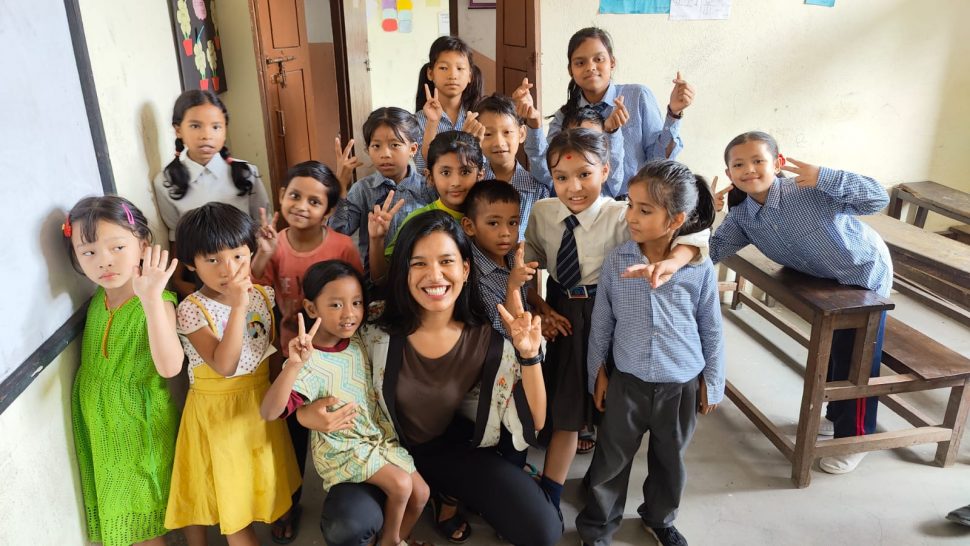
‘I want to study pharmacy but I did not know anyone who had done pharmacy but I was connected to a pharmacist sister by Lokopakar, talking with her I now know what I should study and how I should plan ahead. I also figured out we had similar interests in singing and we talk about that too’. – Supriya Manandhar, Banepa.
One of the support goals of your organization is breaking the English language barrier. Can you explain why this is so important?
Through our work with thousands of students in public schools, we discovered that many of them struggle with feelings of inadequacy and lack confidence in the English language. The feeling of not being good enough in English not only hampers their learning of the English language but also directly impacts their confidence level and how they approach their everyday life.
The majority of these students are first-generation learners, and this fear of not being good enough leads them to compare themselves with students from private schools. This harmful comparison prevents them from seizing opportunities and setting ambitious goals for themselves.
In a survey by Lokopar, out of 85 students, 80 lacked confidence in reading, writing, and speaking English. Additionally, 83 out of 85 were actively seeking programs or sessions to improve their English language skills beyond just treating it as a subject. The students really want to learn but they do not know where to start. We provide guidance and resources for improving English to build a mindset that helps them overcome their fear of the English language.
In Nepal, the High School Leaving Exams (SLC) hold immense importance as they are considered a crucial milestone. Over 90% of students who fail these exams do so in subjects like Maths, English, or Science. The SLC results significantly impact the opportunities and choices available to students. Since many aspire to study abroad or secure better job prospects, English proficiency becomes a crucial barrier. If students are not fluent, they miss out on potential opportunities.
At Lokopakar, we focus on laying a strong foundation for students to learn the English language independently, fostering their confidence in using it effectively. This not only empowers them to seize present-day opportunities but also opens doors for the future. As their proficiency and comfort with the English language grow, so do their life opportunities.
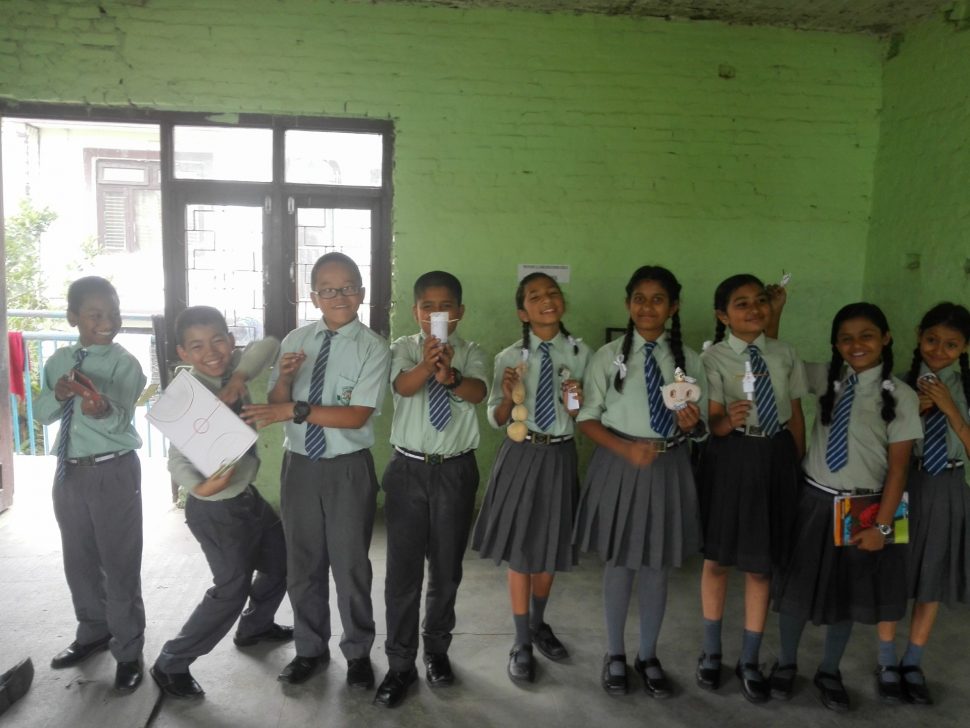
‘My favorite subject is English because all the answers are in the passage, but I feel afraid to speak in English because I feel I will make mistakes and my friends will laugh about it’ – Bhawana Ghimire.
Can you talk some more about your work with local schools, specifically the design thinking challenge called ‘Ready Set Design’?
For the past 8 years, I have been conducting Ready Set Design, especially for public school students both physically and virtually. The design thinking challenge is a 90-minute session where students identify problems and work on their solutions creating prototypes.
The education system in Nepal leans heavily towards theory rather than practical application, leaving little room for hands-on activities. Personally, I have always believed in giving students the opportunity to view things from different perspectives and approach learning in a practical manner, even with limited resources. In Nepal, every school faces resource constraints, but our program strives to empower students to think outside the box and empathize with stakeholders, and solve real-world problems. This approach encourages them to generate innovative ideas and take ownership of their learning.
To give an example: One group of students made a duster out of the old clothes found in their home to solve the problem of scarcity of dusters in the class. They even created a rotation roster for making dusters so that it will not be a burden to one student alone. This shows that students can implement solutions and understand planning tools.
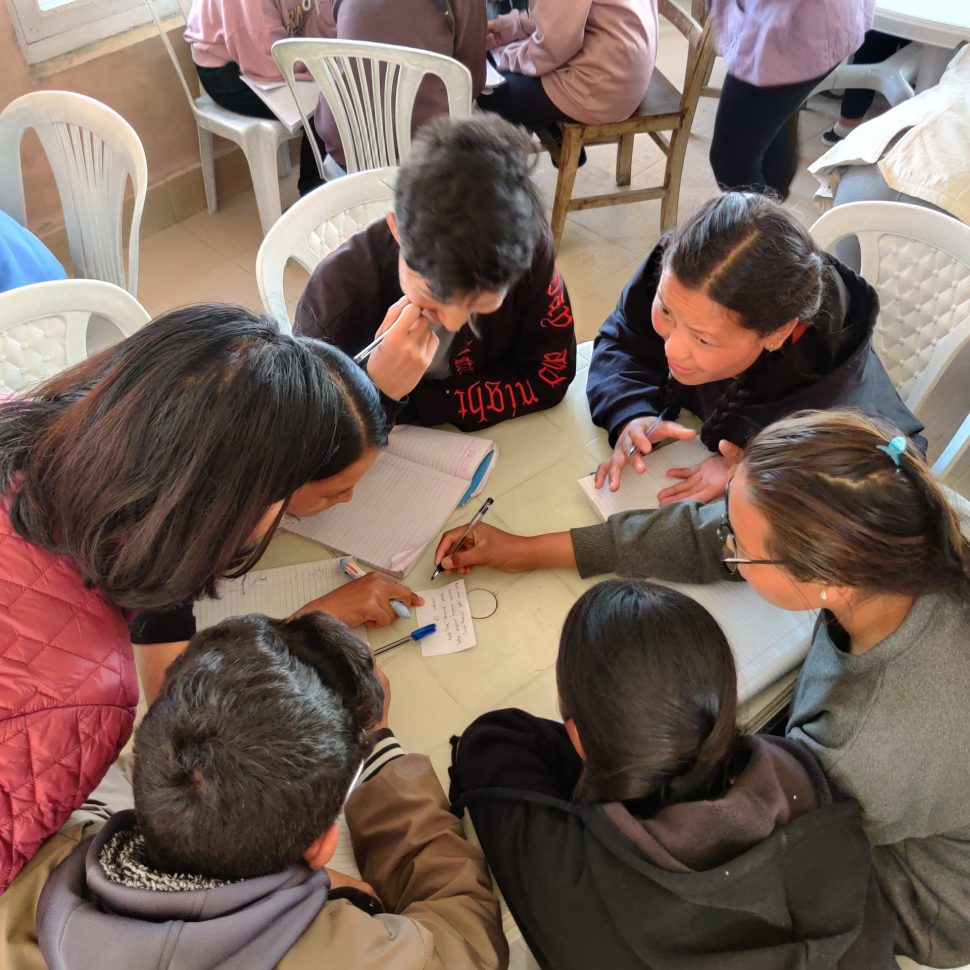
‘The activity helped me learn teamwork and how we can solve our own problems with the resources we have, rather than depending upon others for the solution’. – Yungdung Sangmo, Dolpa.
How do you measure the impact of Lokopakar’s work?
A shy girl Manaswi turned to a cohort coordinator where she led 30 girls in her cohort.
When we asked Kriti to say her name in English she refused it. After attending one session she started using full sentences in English and now without hesitation speaks in English.
Students raise their hands to come to the front and speak when they did not even look up from their desks during the first session.
They gained confidence with a huge smile on their face.
These students are what matters, and these stories, beyond any numerical measures, is what documents the impact of Lokopakar’s work.
The steps we have taken might not yield immediate visible results, but they are paving the way for a transformative shift in our mindsets for the future. Our ultimate goal is to instill a unique perspective called ‘Soch – perspectives,’ which encourages thinking, visualizing, and acting in unconventional ways without the fear of failure.
We gauge our impact by observing the continuously evolving perspectives of the students, and in the process, we find our own views and thoughts evolving as well. Witnessing these changes and growth in both the students and ourselves brings a profound sense of personal satisfaction. Knowing that we are contributing to positive changes in the future of these students is an achievement that holds great significance for me.
What advice would you give to other first-generation students who are interested in pursuing higher education?
There are plenty of opportunities that exist but we are unaware of them, because of our limited circle and no one to guide us. Education connects us globally and provides access to individuals who can open up a world of opportunities and networks for us.
Pursuing higher education and moving towards your passion can be terrifying but there are individuals who have been through a similar journey. They can show the path and help in this journey.
There are times when one may not see the importance of education and find the motivation to continue it. But education provides knowledge and skills that help you achieve your goals. It will provide valuable connections and networks that lead to opportunities and growth. Education not only helps you as an individual but also helps bring positive change to your parents and community as a whole.
About
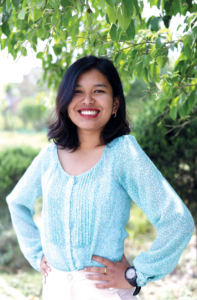 Barsha Tamang is Cofounder of Lokopakar, Nepal based company founded in 2019 for Youth development focused on adolescent girls. Lokopakar has worked with over 4500+ girls in Nepal and Nigeria. Barsha ideated ‘Strength TogetHER’ – safe space and support platform for girls to share their experiences and stories to develop a sense of “I am Enough”. Before Lokopakar, she has been involved with different innovative programs including Scitrek – practical science lessons for rural schools, ThinkInk – design thinking for students and Sukarmi – girls financial independence project through social data collection. She strongly believes in creating an inclusive social support system to help each other grow. Barsha was a mentee of Mission Director of USAID in a Women Leadership Mentorship program by the UK Embassy. She was awarded Princess Helen Shah Inspiration Women Award, prestigious award for young inspiring Women. She is also an alumni of Aspire Leadership Program 2022. Barsha loves hiking and trekking. She likes meeting new people and dogs. She enjoys nature and loves taking pictures of it.
Barsha Tamang is Cofounder of Lokopakar, Nepal based company founded in 2019 for Youth development focused on adolescent girls. Lokopakar has worked with over 4500+ girls in Nepal and Nigeria. Barsha ideated ‘Strength TogetHER’ – safe space and support platform for girls to share their experiences and stories to develop a sense of “I am Enough”. Before Lokopakar, she has been involved with different innovative programs including Scitrek – practical science lessons for rural schools, ThinkInk – design thinking for students and Sukarmi – girls financial independence project through social data collection. She strongly believes in creating an inclusive social support system to help each other grow. Barsha was a mentee of Mission Director of USAID in a Women Leadership Mentorship program by the UK Embassy. She was awarded Princess Helen Shah Inspiration Women Award, prestigious award for young inspiring Women. She is also an alumni of Aspire Leadership Program 2022. Barsha loves hiking and trekking. She likes meeting new people and dogs. She enjoys nature and loves taking pictures of it.
